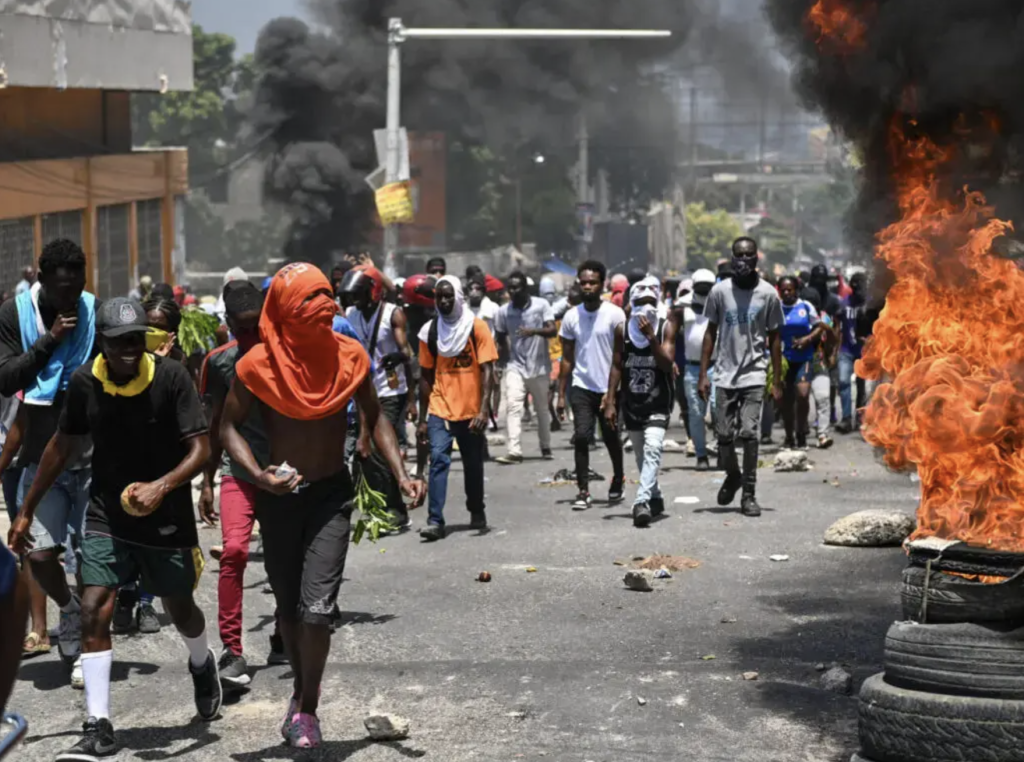
The Dominican Republic must play a proactive role in promoting peace, investment, and job creation in neighboring Haiti, argues economist Humberto Cristian, a member of the Haiti Studies Unit at the P. Alemán Center of the Pontificia Universidad Católica Madre y Maestra (PUCMM), as reported in Listin Diario.
In a recent opinion piece titled “Emotion-Driven Migration Policies and Their Impact on National Life,” Cristian emphasizes that current immigration measures alone are not enough to prevent future crises. He points to Haiti’s significantly higher birth rate and warns that, without political and economic stability, the situation could deteriorate further in the next decade.
“If we don’t eliminate the power of gangs and restore political order, in 10 to 15 years, we may face an even more severe crisis than today,” Cristian cautions.
The ongoing instability in Haiti, Cristian argues, is no longer just a Haitian problem—it’s a Dominican one too. “This crisis spills over the border. Dominican policy must recognize that stability in Haiti is essential for stability at home.”
He urges the Dominican government to support international peace efforts in Haiti, including backing the Transitional Presidential Council. Such efforts, he says, require coordinated political and financial support from the global community to help Haiti regain territorial control and assert legitimate authority.
Cristian also criticizes local nationalist movements for ignoring the deep economic interdependence between the two countries—particularly the Dominican reliance on Haitian labor.
He notes that while often labeled “cheap,” Haitian labor—especially in construction—is not as inexpensive as believed. Nevertheless, its availability has discouraged technological upgrades in sectors like rice farming. “Nationalization and mechanization take time. We can’t shut down parts of our economy waiting for that transition.”
He also highlights that Haiti is the Dominican Republic’s second-largest trade partner in both exports and re-exports, underscoring the importance of a stable Haitian economy to Dominican business interests.
Cristian calls out years of neglect in enforcing immigration laws, claiming the system became a profitable—but illicit—enterprise for military and civilian officials alike. He praises the current administration for cutting down on human trafficking and extortion but warns that this illicit economy has become deeply entrenched and will take sustained effort to dismantle.
He expresses concern over the rise in nationalist rhetoric, accusing right-wing parties and patriotic movements of politicizing the border crisis for electoral gains—citing past issues like the Friusa settlement, Haitian maternity patients, and the canal dispute in Ouanaminthe, Haiti.
“These groups are now pushing a narrative of a ‘patriotic war’ against Haiti,” he warns. “That’s dangerous. It’s time to think rationally and stop following their lead before we make a historic mistake.”
He distinguishes between targeted border closures for specific issues, which have political advantages but economic downsides, and the far more serious consequences of escalating into armed conflict.
Cristian denounces the lack of attention to the root causes of migration — poverty, insecurity, and political instability in Haiti — as well as the complicity of Dominican officials in profiting from migrants’ vulnerability.
He concludes with a stark warning: “These movements speak of war, but what exactly are they proposing? Extermination? Occupation? Have they even thought about an exit strategy? It’s all emotion, used as a tool for political control and relevance.”
Read more in Spanish:
Hoy
30 June 2025

